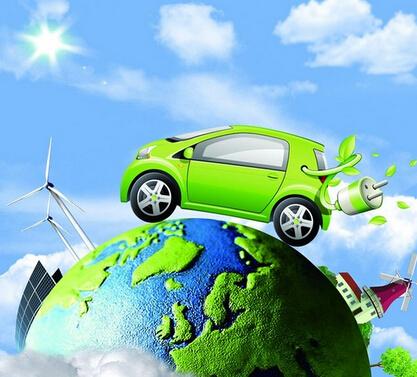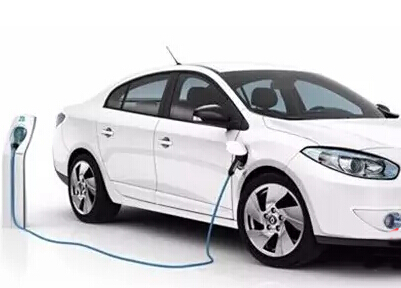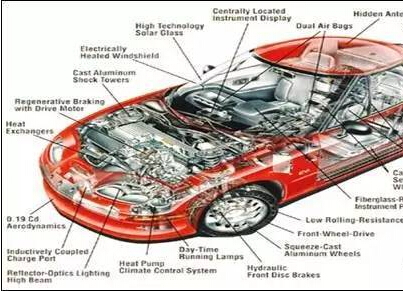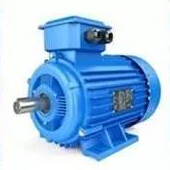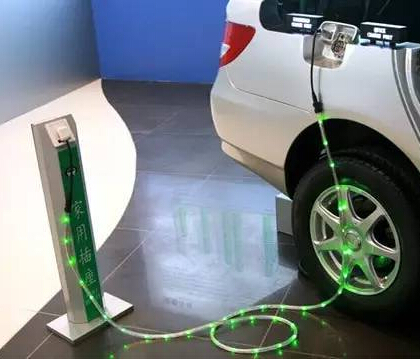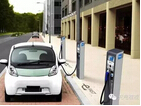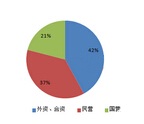On December 3, the Ministry of Industry and Information Technology issued the "New Energy Vehicle Industry Development Plan (2021-2035)" (draft for comments) and publicly solicited opinions, marking that the implementation of the new energy vehicle plan for 2021-2035 will further accelerate
In the opinion draft, it is proposed to insist on equal emphasis on vehicle and component innovation, strengthen the supply of key common technologies, promote the parallel integration of electrification, networked, and intelligent technologies, and continue to improve the innovation capacity of the new energy vehicle industry.
Only recognize the three major technical directions
In the process of developing new energy vehicles, car manufacturers are most afraid of changes in the government-defined technical route, and this opinion draft has given these companies a peace of mind.
In the next 15 years of new energy vehicle industry planning, pure electric vehicles, plug-in hybrid (including extended range) vehicles, and fuel cell vehicles have become the three major technological directions recognized by the country.
The opinion draft focuses on clarifying the industrial development path in the next 15 years, that is, to deploy pure electric vehicles, plug-in hybrid (including extended range) vehicles, and fuel cell vehicles as the "three verticals" to lay out the entire vehicle technology innovation chain. The management system, drive electronics and power electronics, network connection and intelligent technology are “three horizontal”, and a key component technology supply system is established, which in turn forms a “three vertical and three horizontal” R & D layout.

The opinion draft issued this time also clearly supports the development of hydrogen fuel cell vehicles, and puts forward the need to focus on improving the economics of hydrogen fuel storage and transportation, and accelerating the construction of infrastructure such as charging and replacing, hydrogenation, information communication and road transportation.
Affected by this news, on December 3, the fuel cell sector climbed collectively. Both Kailong and Jingcheng's daily limit rose. Xiongtao, Quanchai Power, Sinoma Science and Technology, Dulwich Advanced Materials, Sinosteel Tianyuan and other stocks strengthened.
Adjust sales target for 2025
However, compared with the previously circulated version, the official opinion draft issued this time has made major adjustments in future development goals.
This opinion draft proposes that by 2025, new energy vehicles will account for about 25% of new car sales, intelligent connected cars will account for 30% of new car sales, and highly autonomous self-driving intelligent connected cars will achieve commercialized applications in limited areas and specific scenarios. . According to media reports, the previous target was that by 2025 new car sales of new energy vehicles accounted for 20% of the total car sales that year, that is, this opinion draft increased by 5%

The opinion draft also reduced the requirements for the average power consumption level of pure electric passenger cars. It is proposed that by 2025, the average power consumption of new pure electric passenger cars will be reduced to 12 kWh / 100 km. ) The average fuel consumption of new passenger cars is reduced to 2 liters per 100 kilometers. The previous goal was to reduce the average power consumption of new energy passenger cars to 11 kWh / 100 km by 2025.
The official opinion draft also deleted the previous development goals for 2030, that is, by 2030, sales of new energy vehicles accounted for 40% of total car sales in that year, and sales of conditionally autonomous intelligent connected cars accounted for 70%.
















 RCCN WeChat QrCode
RCCN WeChat QrCode Mobile WebSite
Mobile WebSite